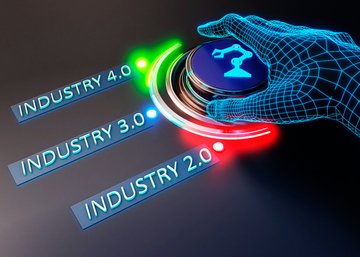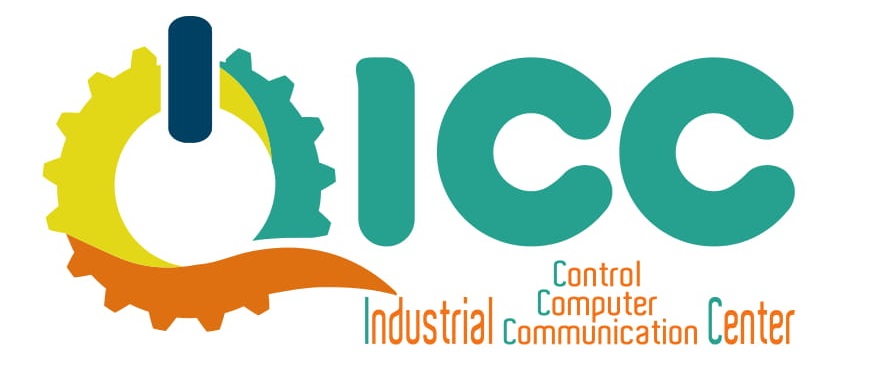

10.04.2023 10:23:47
Industrial Revolution 4.0: A Plan for Robots to Take Over the World?
Geschrieben von: ICC Dijital
Industry 4.0 is considered to be the fourth and newest generation of the industrial adventure that started in 18th century England. This new generation industry aims to start the digital industry era by carrying the production process to a new dimension with computer and information technology.
Industry 4.0 first made its name in 2011 at the Hannover Fair in Germany. Industry 4.0, which is based on the idea of robots taking over production completely and minimizing human errors with the development of artificial intelligence, continues to take its place in today's industry, especially thanks to the developments in digital fields. Along with the support provided by the German federal government, leading industrial companies and other countries are also supporting Industry 4.0 and are planning their future targets accordingly.
Mankind, who wanted to be involved in the industrialization process, had completed its preliminary preparations since the 1500s. With the development of steam power, the industry 1.0 era had begun, and with the transition to electricity generation, the industry 2.0 era began. Industry 3.0, which paved the way for automation and digitization with the development of electronics and information technologies, started in the 1940s. In this process, there was a process that developed within the production system and went towards mechanization. In the Industry 3.0 era, technology supported labor and the issues of transistor technology and the adaptation of computers to daily life gained weight.
Industry 4.0, on the other hand, aims to start a new industrial revolution with the technological developments in the digital age. Robots and AI will take more control of the manufacturing process, while helping humans work more efficiently and with less error. Among the objectives of Industry 4.0 are sustainability, smart factories and optimizing production processes.
Digital Revolution in Industry: Industry 4.0
Industry 4.0 is a transformation process, also known as the 4th Industrial Revolution. Beyond traditional industrial processes, it aims to further digitize with the use of advanced technologies such as artificial intelligence, smart robot automation and the internet of things. This revolution creates a harmony between cyber-physical systems and online networks that report data, save time and increase efficiency. The main purpose of Industry 4.0 is to prevent waste.
Shared Production with Robots
Another goal of Industry 4.0 is to take production out of factories with 3D printers in order to minimize human errors and move production to homes. For this purpose, technologies such as big data, smart robot automation, internet of things, augmented reality, cyber security, end-to-end software integrations, simulations, 3D printing and cloud systems are used. One of the most important goals of Industry 4.0 is to take over the production of robots that communicate with each other, detect the environment with sensors and meet the needs by analyzing data. For this reason, it is among the first choice reasons for those who want to produce higher quality, cheaper and more efficient.
Infrastructure in Industry 4.0
Industry 4.0 consists of three main parts: internet of things, internet of services and cyber-physical systems. The Internet of Things (IoT) is the ability of interrelated mechanical objects, computing devices, digital machines or unique identifiers to transfer data over the network without the need for humans. The Internet of Services (IoS) is a system where the service provider and the consumer come together on the internet network. Cyber-physical systems (CPS) connect the physical and virtual worlds using sensors and power transmission mechanisms.
Continuous Renewal
The Industry 3.0 production system was a process towards mechanization and played a complementary role with human labor. However, Industry 4.0 includes artificial intelligence, smart production systems and autonomous production systems beyond completely computer and information technologies. This revolution can be thought of as the unification of humans and machines with the help of sensors. In addition, innovations such as the internet of things, the internet of services and the adaptation of data-driven architectures to the real sectors draw attention. This holistic perspective points out that Industry 4.0, unlike other industrial revolutions, will create change and transformation in all sectors.
Will the robots replace humans?
One of the most curious questions in Industry 4.0 is "Will robots replace humans?" is the question. In this revolution, both robots and human power must coexist. In matters that require physical power, tasks will fall to machines, while manpower will be at work with the ability to use machines and smart thinking.
Industry 4.0 Factories Worldwide
Being among the pioneers of Industry 4.0, the German brand Siemens leads the efforts to produce smart and error-free products in automation systems, as well as its next generation production, infrastructure and cyber security targets. As one of the world's leading brands in Industry 4.0, Bosch also prepares reports for the German government due to its position. Using the internet of things technology, he works on smart home and office vehicles, advanced industrial structures, and finally logistics and smart systems.
Producing the first mass-produced carUS-based Ford was one of the companies that started Industry 2.0 and today it is among the pioneers of Industry 4.0. The Japanese brand Mitsubishi Motors created the "machine to machine" platform by working on the internet of things and combined computer numerical control (CNC) and robotic technologies to realize ultra-modern smart production.
ICC DIGITAL INDUSTRIAL TECHNOLOGIES Bv.
Wittestraat 103/Bus 2, 2020 Antwerpen Belgien
Telefon: +32 486 52 34 00
E-Mail: info@iccdigital.eu
Web: https://www.iccdigital.eu
Mehrwertsteuer / BTW: Sei 0793.849.582

